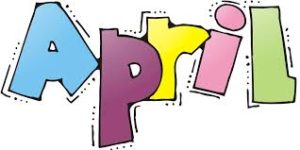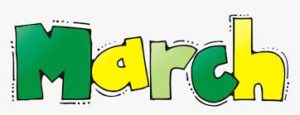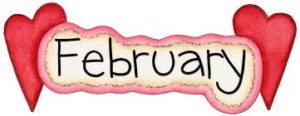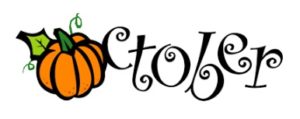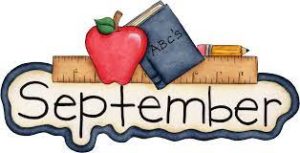As the end of the school year quickly approaches, we will be working hard on completing our final units of study and we look forward to participating in many fun activities this May!
This month, we continue to work on the learning goal of Collaboration!
Upcoming Curriculum Connections:
In French, we are busy putting together our Sauvez la Planète Terre books. Later this month, we will begin a fun unit about camping. Students will create and present a camping dialogue with a partner. Students continue to work on their French grammar skills this month by conjugating regular “er” verbs and including the proper endings for masculin and feminin adjectives. This is our final full month for French Home Reading so I encourage all students to borrow and read frequently this month!
In Math, we have begun our new unit on Measurement where we are learning how to measure the length, width, height, thickness and depth of objects as well as selecting the appropriate unit of measurement. Students will be estimating and measuring the perimeter and area of a variety of two dimensional shapes. Students will also explore formulas for calculating the area and perimeter of squares and rectangles. Students will have a chance to demonstrate what they have learned by designing their ideal backyard.
In English Language, we are continuing to read our class read aloud book “Wonder”. Student volunteers have been taking turns reading a chapter from the book out loud to the class (with the help of our class microphone!). As well, students have been practicing different strategies to assist them when reading, with a focus on visualizing and inferencing. We are continuing our procedural writing unit. We have learnt the key aspects included in procedural writing. Students will learn about transition words and the importance of detail in their sequence writing. Students will demonstrate what they have learnt by writing their own “How to Escape From an Alien Planet” procedural writing.
In Science, we are completing our units on Growth and Changes in Plants (Grade 3), and Habitats and Communities (Grade 4). In Growth and Changes in Plants, students will be learning about the human impact on plants and about local foods. Students will end the unit by completing a Plant Design project, where they will choose characteristics for their plant to have and draw it in its natural habitat. In Habitats and Communities, students will learn about food chains and end the unit by creating a diorama of a habitat of their choice, making sure to include animals and plants found in that habitat. The class will also start our final units in science! The Grade 3’s will be learning about Strong and Stable Structures and the Grade 4’s will be learning about Pulleys and Gears.
In Health, we are starting our next unit on Substance Use, Addictions and Related Behaviours. This month we will be learning about different substances, such as prescription drugs, nicotine, caffeine, alcohol, marijuana, and sugar. We will also learn about saying no to peer pressure, substance use and addiction to electronic devices.
______________________________________________________________________________________________
Spring is here (kind of) and with the new season, we will be beginning some new units of study!
For the next two months, we will focus on the learning skill of Collaboration!
In French, we are continuing to learn all about nonfiction text features and how they can help us find important information and the main idea in a text. We will be completing some literacy centers activities later this month in honor of Earth Day. We are also looking forward to participating in a virtual field trip on April 22nd with Chef a l’ecole. Students will be learning vocabulary related to cooking and will assist the Chef with making an authentic French recipe while also learning about French Canadian culture.
In Math, we will be completing a brief unit on transformational geometry. Students will explore how shapes change location and move by using reflections, translations, flips, slides and turns. We will also look at symmetry. As a culminating task, students will have the choice to either create and perform a dance that uses transformational movements or to design an amusement park that contains rides which use transformational movements. Later this month, we will be using rulers to measure the length of objects. Students will learn how to estimate and measure the perimeter and area of 2D shapes.
In English Language, we are still reading our class read aloud book “Wonder”. Student volunteers have been taking turns reading a chapter from the book out loud to the class (with the help of our class microphone!), and students have been completing a “Wonder” booklet with chapter questions. As well, students will practice different reading strategies to assist them when reading, including visualizing, and making predictions, connections, and inferences. We are starting our next writing unit on procedural writing. Students will learn about transition words and the importance of detail in their sequence writing. We will end the unit with students writing their own “How to Escape From an Alien Planet” procedural writing.
In Science, we are continuing our units on Growth and Changes in Plants (Grade 3), and Habitats and Communities (Grade 4). In Growth and Changes in Plants, students will learn about the life cycle of plants and complete a germination investigation where students will grow their own bean plant! Students will learn the difference between coniferous and deciduous trees and conduct a tree investigation about a tree in the schoolyard. They will also learn how floods and droughts impact plants. In Habitats and Communities, students will learn about structural adaptations and complete an investigation about a plant or animal’s adaptations, as well as deforestation and how changes in habitats affect plants and animals. Also, students will learn about invasive species and endangered species and investigate why an animal is at risk, as well as the difference between herbivores, omnivores and carnivores.
In Health, we are continuing our health unit on Healthy Eating. This month we will be learning why it is important to eat healthy food, how to dispose of food and help reduce waste to protect the earth (with a review of composting), oral health and how the food we eat affects our teeth and gums. We will end our unit with a Healthy Eating Quiz and begin our next health unit in May.
_____________________________________________________________________________________________
We have had a fun February in Room 304 and are looking forward to March (break) and the official start of Spring!
This month, we will focus on the learning skill of Self-Regulation!
In French, we are finishing up our unit about the Winter Olympics. Students are inventing their own Olympic events and they will be sharing their new sport with the rest of the class in a short oral presentation. In March, we will be completing a mini unit on non-fiction text features. We will be working on learning how to use these text features and graphic organizers to assist us with finding the main idea and important information in a text. We also look forward to reading the 10 finalist books for the Prix Peuplier (Forest of Reading contest) and we will be voting on our class’ favourite book.
In Math, we will be completing our unit on solving problems using multiplication and division. Students have learned a variety of multiplication and division strategies by playing games, completing math centres and by working on group and individual problems. Towards the end of the month, we will begin a brief unit on transformational geometry. Students will explore how shapes change location and move by using reflections, translations, flips, slides and turns. We will also look at symmetry.
In English Language, we are continuing our class read aloud book “Wonder”. Student volunteers have been taking turns reading a chapter from the book out loud to the class. We also have a “Wonder” booklet that contains questions for each chapter that students will start completing individually, including inferences, summarizing, predicating and personal connections. As well, students will be learning about the visualizing strategy to assist them when reading. We took a break from learning media for the Winter Olympics, but we will be continuing our media unit! Students have learnt what media is, who the audience is and what the purpose of media is. Students will learn about the different elements of media and the conventions and techniques media creators use to attract their audience in order to design their own hoodie!
In Science, we are starting our next units on Growth and Changes in Plants (Grade 3), and Habitats and Communities (Grade 4). In Growth and Changes in Plants, students will learn what plants need to survive, why plants are important, and why pollination, and photosynthesis are key. We will also be completing a dyed flower experiment to learn about the different parts of plants and flowers. In Habitats and Communities, students will learn about habitats, looking at their own habitat and community and how it’s different from animal habitats. Students will also learn about animal adaptations, and what deforestation is.
In Health, we have started our new health unit: Healthy Eating. This month we will be learning about where food comes from (locally grown or imported), how some foods are made up of other foods (like burgers and pizza), and the difference between processed “sometimes” foods and fresh foods.
_____________________________________________________________________________________________
Here’s what we will be up to in February! Our learning skill of the month is Independent Work.
In French, we continue to learn and apply vocabulary related to winter. We will be reading about the famous “hotel de glace” in Quebec and students will be designing and writing an opinion piece to convince others to visit their hotel. Students will continue to learn and reinforce their winter sports vocabulary as they complete a variety of literacy centre activities about the Winter Olympics! This month, we will also be discussing the importance of making an effort to speak in French during our French subjects as this will help us to become more confident French speakers. We will be learning different speaking strategies that will help us avoid switching to English when we are interacting with our peers such as talking around the unknown word and using gestures. This month, we will start to learn about how to conjugate the frequently used verbs aller and faire.
In Math, we are finishing up our unit on Geometry. We’ve learned all about the attributes of two and three-dimensional figures. Students have also practiced their spatial reasoning skills through building, partner games and other hands-on activities. Students have classified figures, made nets, identified similar and congruent figures and identified different types of angles. We will be having a culminating test for the Geometry unit and details will follow in the second week of February. For the remainder of the month, we will tackle the tricky unit of Multiplication and Division. We will learn about a variety of strategies that we can use to solve multiplication and division problems. We will also learn how to check the reasonableness of our solutions by using a different strategy. This month would be a great month to practice multiplication facts from 1×1 up to 7×7 or even higher if you are ambitious!
In English Language, we are continuing to read our class read aloud book “Wonder”. Student volunteers have been taking turns reading a chapter from the book out loud to the class. We also have a “Wonder” booklet that contains questions for each chapter that we complete as a class, including inferences, summarizing, predicating and personal connections. We have begun our media unit! Students have learnt what media is, who the audience is and what the purpose of media is. Students will learn about the different elements of media and the conventions and techniques media creators use to attract their audience in order to design their own hoodie! The Winter Olympics are this month as well! Students will randomly choose a country, and with their partner they will research about the Winter Olympics and their country, while also tracking their countries’ medal count daily.
In Science, we are finishing up our units on Forces of Movement (Grade 3) and Light and Sound (Grade 4). In Forces of Movement, students have learnt what a force is, the 5 different types of forces (gravity, electrostatic, magnet, muscles and friction) and conducted some experiments. Students will look at different forces in nature (erosion, landslides, lightning, or tidal waves), and how safety devices can minimize the effects of forces. In Light and Sound, students have learnt the properties of light, the properties of sound, and how our ear allows us to hear the sound vibrations. Students will look at different uses of sound and light, and the impact of light and sound on society and the environment.
In Health, we have started our new health unit: Personal Safety and Injury Prevention. So far students have learnt about concussions, safety walking to school, water safety, and safety around animals. This month we will be learning about fire safety, internet safety and the difference between fictional and real violence.
______________________________________________________________________________________________
It has been a great month of learning in Room 304. We can’t believe it’s almost time for the Holidays!
Here’s what we will be up to in December! Our learning skill of the month is Responsibility.
Math: We will be wrapping up our unit on understanding and implementing different addition and subtraction strategies, as well as using a 4 step approach to solving word problems in French. From here, we will move forward to our unit on Data Management. We will be learning how to read, interpret and create different types of graphs such as bar graphs, line graphs and pictograms. We will also learn about the steps involved in conducting a survey from designing a question, collecting data and representing the data in appropriate ways. Students will have a short oral presentation to prepare at home in the New Year where they will be drawing conclusions based on a graph they find in a newspaper, magazine, book or on the internet. Stay tuned as details will follow. They will also be conducting their own surveys in class!
French: This month, we will begin establishing deep thinking connections while reading. Students will make deep thinking connections by identifying the part in the book they are connecting to, include their own personal connection and explain how making that connection helped them to understand the text better. So far, we’ve learned that we can make connections to many parts of a text such as characters, setting, plot or pictures.
In Writing, students have been working hard at expanding their sentence writing by including prepositions (i.e. Sur, sous, dans, devant, derrière). This month, we will continue to examine how adjectives can add description to our sentences. Additionally, students will start learning about how to express their opinions and compare and contrast both orally and in writing.We are getting into the holiday spirit by learning about different Winter Celebrations from various cultures such as Diwali, Hanukkah, Kwanzaa and Noel!
Language: This month we are continuing to read our class read aloud book “Wonder”. This book is from the perspective of a student starting Grade 5 who is different from the other students and how his classmates and school community learn to accept and appreciate his uniqueness. While reading, student volunteers will take turns reading a chapter from the book out loud to the class. We also have a “Wonder” booklet that contains questions for each chapter that we complete as a class, including inferences, summarizing, predicating and personal connections.
In Writing, we have been reviewing parts of speech including nouns, verbs, pronouns, adjectives and adverbs. Students have been learning about each to understand that sentences do not make sense without these parts of speech. While reading independently, students have also been recording the different parts of speech that they can find in their books. Students have also begun to design their own ugly holiday/winter sweaters using different materials. Afterwards students will write a persuasive argument about why their sweater is the ugliest and give an oral presentation to the class to try and convince them that their sweater should win the ugly sweater contest!
Science: We are ending our unit on Soil (Grade 3) and Rocks and Minerals (Grade 4). Students have been completing their end of unit projects and will be presenting their google slide presentations this week on how a plant/animal/human benefits from/gives to the soil (Grade 3) or about their pet rock and it’s rock cycle (Grade 4). Next we will begin the units on Forces of Movement (Grade 3) and Light and Sound (Grade 4). In Forces of Movement, students will learn what a force is, the 5 different types of forces (gravity , electrostatic, magnet, muscles and friction) and conduct some experiments. In Light and Sound, students will learn the difference between natural and artificial light, objects that emit or reflect light, and that light travels in a straight path.
Health: Students have been learning about stressors and how they affect your body, along with coping strategies and self-esteem. We will be learning about some different strategies that positively affect our mental health, including sleep, exercise, mindfulness, meditation, etc. In the new year we’ll start our next health unit Personal Safety and Injury Prevention.
______________________________________________________________________________________________
Each month this year, we will focus on a specific learning skill in Room 304. Students will set personal goals related to that learning skill and will hopefully discover some strategies to improve upon that skill and reach their goals over the course of the month. October’s learning skill is Organization!
The Stage 1 Opening of our school library starts this month. Students will have the chance to sign out one English and one French book to be kept in their desk at school.
Curriculum Connections:
French
Last month we began learning about the different components that make up sentences such as verbs, adjectives, nouns and determiners (le, la, les). We are continuing to work on producing more complex sentences and short descriptive paragraphs this month by following a model, using classroom word walls and dictionaries to help us access new vocabulary. In reading, we are working on becoming better readers by making just-right book choices. We will be reviewing our French sounds and strategies that can help us decode unfamiliar words. I encourage you to read at home daily with your child in French as a means to improve their comprehension and fluency of French texts. Unfortunately, home reading book exchange is still not permitted due to COVID but students will be getting online Raz Kids accounts which have both English and French levelled texts.
Our writing this month will center on the theme of Fall and Things that are Spooky. Students will be listening and responding to various texts, making magic potions (recipes) and creating short descriptions of their own invented monsters. We will be learning key vocabulary and grammatical structures related to describing others. Through independent and partner work, students will practice their presentation and group discussion skills.
Math
We started the year off by examining number sense and place value. Students have learned how to represent numbers in different ways, to indicate specific place value and how to decompose numbers. Students are also able to order large numbers and round numbers. This month we will look at identifying and extending number patterns as well as solving addition and subtraction problems using a variety of strategies. We will be learning about growing, shrinking and repeating patterns. Students will have many opportunities to work in collaboration with their peers to solve word problems. It would be beneficial for you to practice basic addition and subtraction facts at home this month with your child.
Language
Last month students were practicing how to write “hamburger” paragraphs. We will continue writing paragraphs, focusing on different ways to begin and end paragraphs around the topic of fall. Students will also add detail to their paragraphs by including descriptive words (what they see, hear, smell, taste, and feel) to help the reader visualize their writing. Finally, students will create their own persuasive pumpkin letter! Students are working on reading a variety of texts and selecting just-right books and will continue to practice reading with a partner to build their confidence as a reader. We will also look at summarizing and identifying the main idea of different stories.
Science
This month we are continuing to learn about our first Science units; Soil for Grade 3’s and Rocks and Minerals for Grade 4’s. Grade 3 students have learnt the importance of soil, the components of soil and different types of soil. This month, students will learn about different additives in soil, such as pesticides, erosion and compost. Students will finish the unit by completing a research project about soil. Grade 4 students have learnt how rocks are made and the three different types of rocks (igneous, metamorphic and sedimentary). This month, students will learn about minerals, how we use rocks and minerals in our daily lives, and mining. Students will finish the unit by completing a research project about a rock of their choice.
Health
Students have been learning about strategies to help ease stress and how to use a growth mindset. Students also learned about the different zones of regulation (red, yellow, blue, and green zones) and calming tools to help get them back to the green zone. This month we will learn more about Mental Health Literacy, focusing on stressors and how they affect your body, along with coping strategies and self-esteem.
______________________________________________________________________________________
Language
We have been learning about how to write “hamburger” paragraphs. We will take our paragraph writing one step further by working on adding awesome adjectives to describe what we see, hear, smell, taste and feel. Finally, students will explore different ways to begin and end paragraphs that will leave their readers wanting more. Students are working on becoming better readers by making just-right book choices, reading a variety of texts and asking questions before, during and after reading to help further their understanding.
French
We are easing back into using our French this year. Our theme this month is School! Students are learning key phrases that we use daily around the classroom and we are reviewing familiar classroom vocabulary. Students will also begin learning about the different components that make up sentences such as verbs, adjectives, nouns and determiners (le, la, les). In reading, we are reviewing our familiar French sounds.
Math
We started this year off by learning that everyone is able to learn and do math! Specifically this month we will be focusing on number sense and place value. Students are learning how to represent numbers in different ways, to indicate specific place value and how to decompose numbers. Students will also order large numbers and round numbers. We continue to practice saying and writing numbers in French.
Health
In Health this month, we are focusing on keeping each other safe by following our Covid protocols. We are also learning about how to identify feelings of stress and certain triggers that may cause us stress such as feeling “stuck” on a difficult task. We are learning a variety of strategies to help ease stress and allow us to persevere. We are also learning about how to use a growth mindset.
Science
We have begun our first Science units! Grade 3 students are learning about Soil and Grade 4 students are learning about Rocks and Minerals. We began our science units by discussing what makes a good scientist and how to “write “ like a scientist by observing, drawing detailed diagrams and including labels. Students created wonder worms and rock’n questions to help guide them on what they would like to discover as we move through these units. This month, grade 3 students will learn about the importance of soil, the components of soil and different types of soil. Grade 4 students will explore how rocks are made, the three different types of rocks (igneous, metamorphic and sedimentary and they will discover how we use rocks and minerals in our daily lives.

